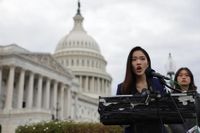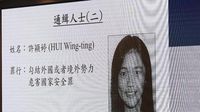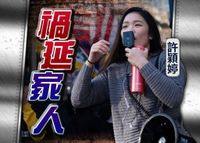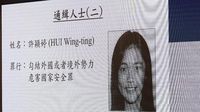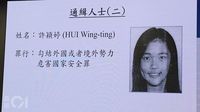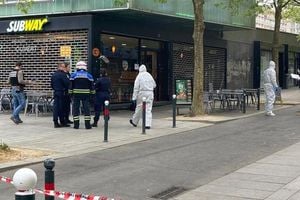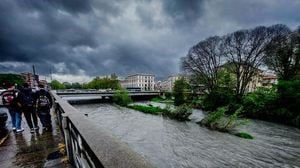On April 10, 2025, the parents of Hui Chi-fung, a former member of the pro-democracy group Demosisto, were taken into custody by the Hong Kong Police National Security Department in Sha Tin District. This action is part of an ongoing investigation into Hui's alleged collusion with foreign forces, a charge stemming from the controversial National Security Law enacted in Hong Kong in 2020.
Hui Chi-fung, who has been living in the United States since fleeing Hong Kong, was previously placed on a wanted list issued by the National Security Department. This list was first released in July 2023, targeting eight individuals, including notable activist Nathan Law. The authorities have since expanded the list to include additional figures such as Dennis Kwok and Hui himself, citing their involvement in various national security offenses.
The recent detention of Hui's parents marks a significant escalation in the Hong Kong government's efforts to exert pressure on dissidents living abroad. In December 2023, Hui's mother was also taken in for questioning, highlighting a pattern of targeting family members of those who have fled, as a means to compel their return or cooperation.
According to reports, the National Security Department is investigating Hui for 'colluding with foreign countries or external forces to endanger national security,' with a reward of HK$1 million offered for information leading to his capture. The authorities have characterized Hui and others on the wanted list as 'specified absconders,' a designation that carries severe legal implications under the National Security Law.
In the wake of these developments, there has been a growing concern among activists and human rights advocates regarding the implications of such actions. Critics argue that the Hong Kong government is using intimidation tactics against families of dissidents to silence opposition and discourage activism. The Secretary for Security, Tang Ping-keung, has previously implemented measures against those listed as absconders, including the cancellation of passports and prohibitions on financial transactions.
In a statement about the situation, a spokesperson for the National Security Department emphasized the need for strict enforcement of the law, stating, "We will not tolerate any actions that threaten the stability and security of Hong Kong." However, this has been met with significant backlash from the international community, which views such measures as a violation of human rights and an attempt to stifle free speech.
Hui Chi-fung's case is emblematic of the broader crackdown on dissent in Hong Kong following the implementation of the National Security Law. Since its introduction, numerous activists, journalists, and ordinary citizens have faced arrest or prosecution for expressing views deemed contrary to the interests of the state. The law has been criticized for its vague definitions and broad applicability, which many argue undermine the freedoms guaranteed under the Sino-British Joint Declaration.
As the situation continues to unfold, the families of those targeted remain in a precarious position. The fear of being caught in the crossfire of political repression looms large, as evidenced by the experiences of Hui's parents. Observers note that these tactics serve not only to intimidate individuals but also to send a chilling message to the wider community about the consequences of dissent.
International reactions have been swift, with calls for the Hong Kong government to respect human rights and cease its campaign against dissent. Several foreign governments have expressed concern over the treatment of activists and the implications of the National Security Law for the future of civil liberties in Hong Kong.
In summary, the detention of Hui Chi-fung's parents underscores the lengths to which the Hong Kong authorities are willing to go in their pursuit of individuals they consider threats to national security. As the investigation continues, the case highlights the ongoing struggle for freedom and democracy in the region, against a backdrop of increasing repression.
